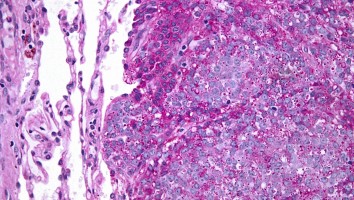
Scientists with the Greehey Children's Cancer Research Institute at UT Health San Antonio have discovered a surprising connection between a breast cancer protein, BRCA1, and a paediatric cancer called Ewing sarcoma.
Their findings, reported March 7 in the journal Nature, reveal a completely new mechanism by which BRCA1 can be rendered dysfunctional.
"The observations raise many new questions about both Ewing sarcoma and BRCA1 biology," said the study's senior author, Alexander J.R. Bishop, D.Phil., of UT Health San Antonio.
Ewing sarcoma is a paediatric bone and soft tissue cancer.
The median age of Ewing sarcoma patients is 15 years, and more than half of patients are adolescents.
"Our team worked to identify why Ewing sarcoma is usually sensitive to standard cancer drugs, with the hope of finding new targets for therapy and revealing new ways to treat the disease if it returns or does not respond to standard therapies," Dr. Bishop said.
Almost all Ewing sarcomas are caused by a rearrangement of two genes that are fused together. The resulting combination of the Ewing sarcoma protein, EWSR1, and another protein, usually FLI1, is called a "fusion oncogene."
This bad actor promotes cancer.
The researchers reported in Nature that the mutant protein produced by the fusion oncogene interferes with normal EWSR1 protein function.
Because of this, the cancer's normal cell functions run unchecked.
BRCA1, which repairs damaged DNA (genetic material) when those same cell functions shut off, cannot do this repair because the machinery keeps running.
"EWSR1 is like a train conductor who sees damage on the tracks ahead and stops the train," Dr. Bishop said. "BRCA1 is the repair crew who are passengers on the train and go fix the damage when the train stops. But now you've got this mutant bully, this fusion oncogene, who prevents the conductor from being able to stop the train and prevents the repair crew from getting off to work on the tracks."
Source: UT Health Center
The World Cancer Declaration recognises that to make major reductions in premature deaths, innovative education and training opportunities for healthcare workers in all disciplines of cancer control need to improve significantly.
ecancer plays a critical part in improving access to education for medical professionals.
Every day we help doctors, nurses, patients and their advocates to further their knowledge and improve the quality of care. Please make a donation to support our ongoing work.
Thank you for your support.